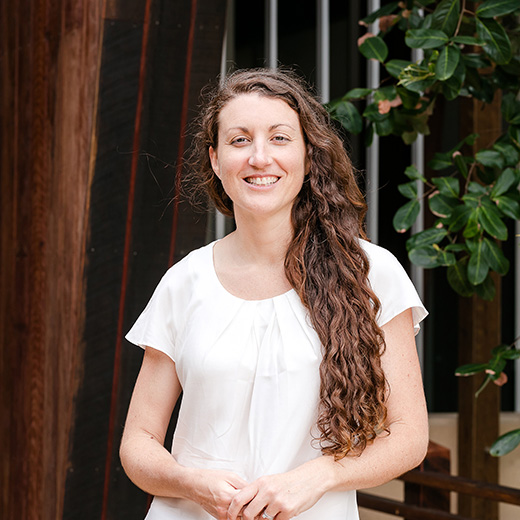A researcher from USC Australia using cutting-edge data science to help boost the sustainability of fisheries worldwide has been awarded a major government grant to further her work.
Quantitative marine ecologist Dr Kylie Scales was yesterday named by the Australian Research Council as a recipient of a prestigious Discovery Early Career Researcher Award, which comes with funding that will allow her to focus full-time on the research.
The grant will provide Dr Scales with $421,000 over three years which, when coupled with USC’s matching funds, will support two PhD students, data analytics, workshops with world-leading scientists, and the presentation of the study’s findings at international conferences and via open-access scientific papers.
Dr Scales’ work involves applying big data analytics to create new maps and predictive tools that will help to identify where sea life such as turtles and sea birds become accidental bycatch of longline fisheries, and how these hotspots move in a dynamic and changing ocean.
By identifying hotspots of overlap between longline fisheries and habitats of protected marine species, the information will guide decision-making for fisheries, researchers and environmental management organisations, particularly in Australia’s eastern waters, but also globally.
“Cumulative stressors such as habitat degradation, pollution, marine climate change and fisheries bycatch mean that there are populations of marine species that are rapidly becoming endangered,” Dr Scales said.
“We need to figure out solutions to our marine biodiversity crisis and we have an incredible opportunity to do that now, with the proliferation of information and data science techniques at our fingertips.
“New techniques will help us to identify ecologically significant areas in the oceans and how these areas shift with changing conditions, helping the fishing industry and management authorities with their goal of reducing unwanted interactions with non-target species.
“Marine ecosystems are so important for human wellbeing and we have a real chance here to address a chronic problem in the oceans, contributing to ecological and economic sustainability in the fishing industry.”
The project will link animal tracking data sets provided by international collaborators, Global Fishing Watch data of vessels at sea, fisheries monitoring data from the Australian Fisheries Management Authority, physical ocean models and satellite Earth Observation data that can map dynamic features of ocean seascapes.
USC Deputy Vice-Chancellor (Research and Innovation) Professor Roland De Marco said it was world-leading work that would build capacity towards the Australian Government's science and research priorities regarding environmental change.
“Dr Scales is at the leading edge of marine and coastal biology,” Professor De Marco said.
“She has a breath-taking track record of publications in the world’s best journals together with a suite of top-class research collaborations with leading laboratories abroad.
“Her research, and that of other dedicated ecology experts at USC, has led to our regional university gaining a ‘well above world standard’ rating for Environmental Sciences, Environmental Science and Management, Ecological Applications and Fisheries Science in the Excellence in Research for Australia ratings.”
Media enquiries: Please contact the Media Team media@usc.edu.au

